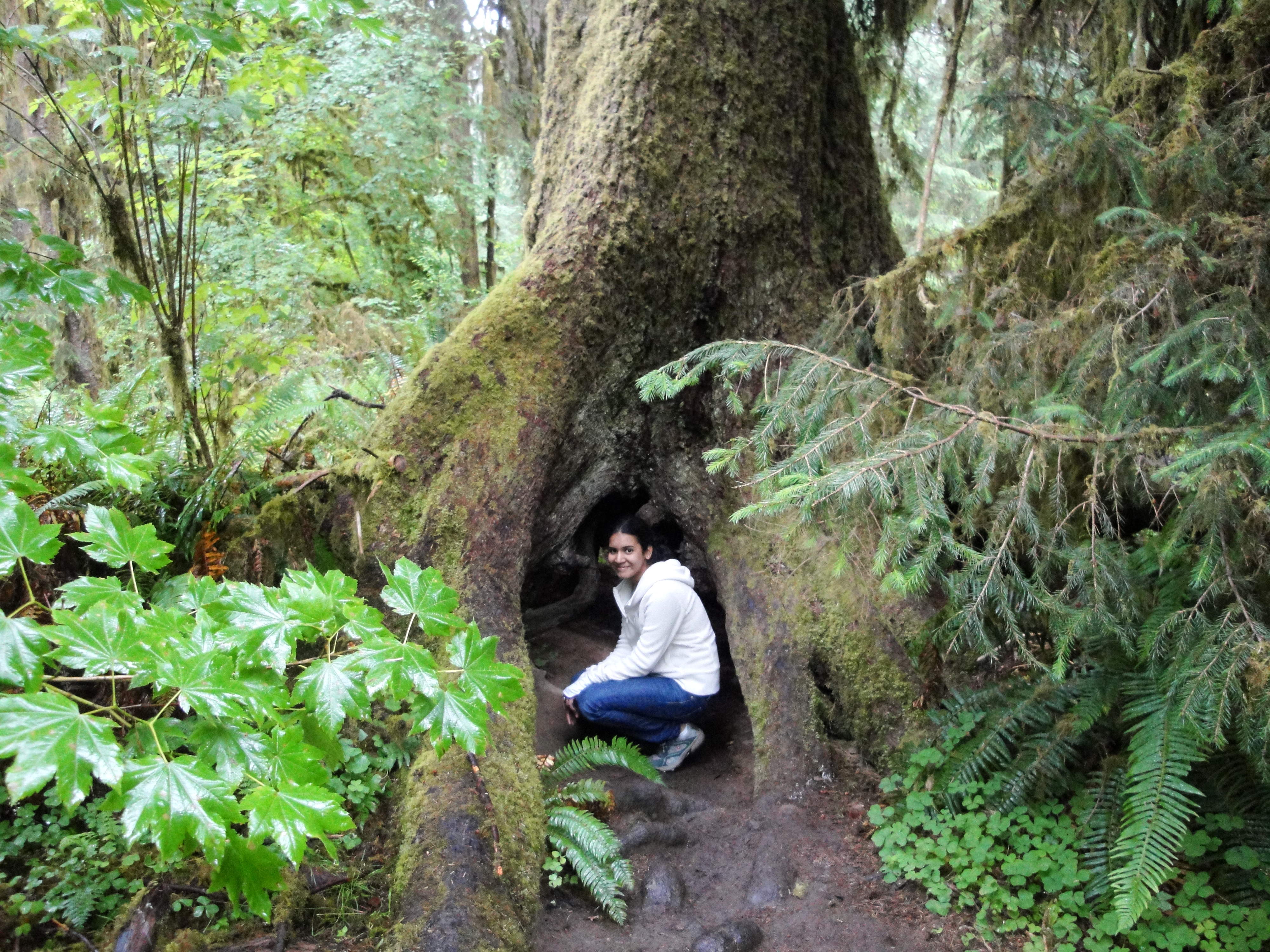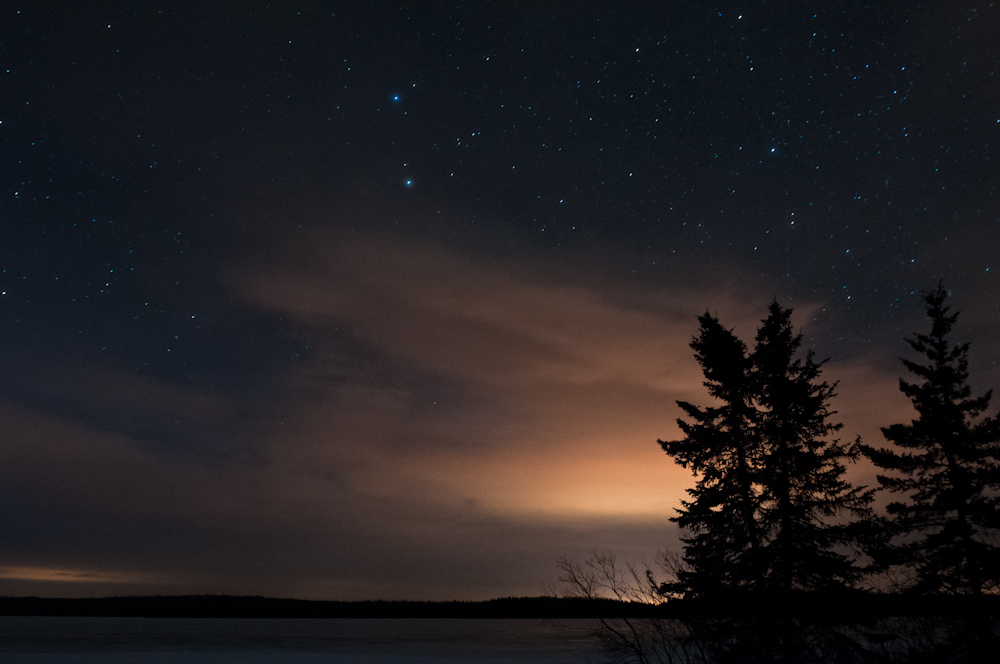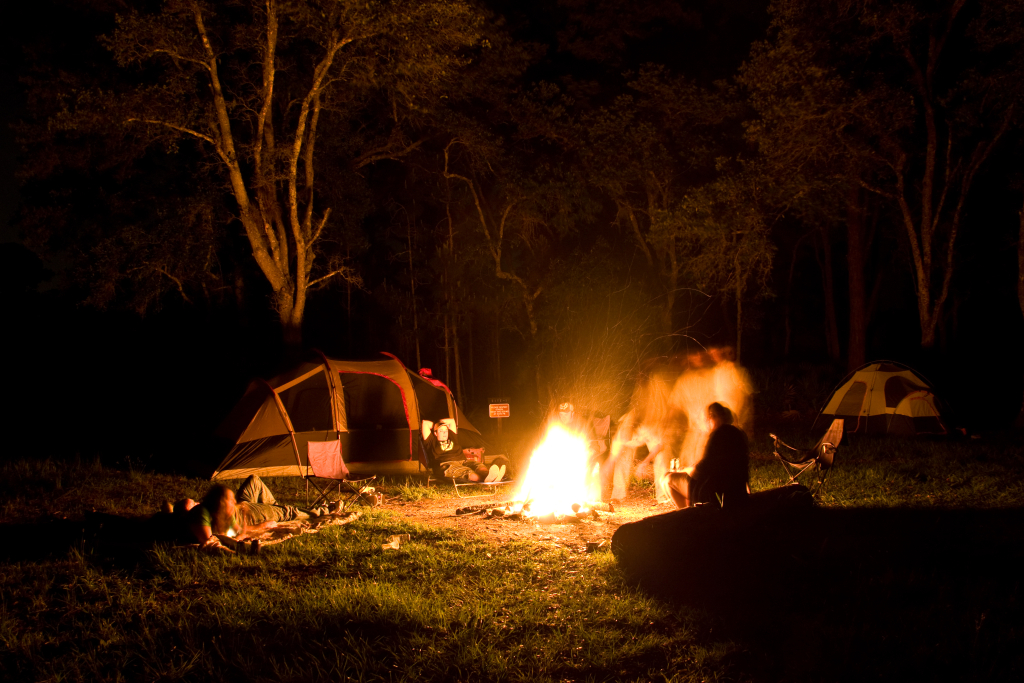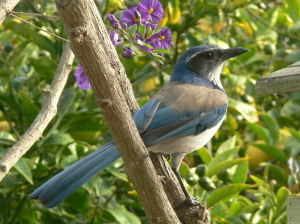Quiet Time

Kelly Mascarenhas
Kelly Mascarenhas is a sophomore pursuing the environmental science major, environmental writing and rhetoric minor, and the Native Peoples and the environment minor. She is also a member of the SU Symphony Orchestra. From South Brunswick, New Jersey, she camps frequently with her family in the Poconos, Catskills, and Pennsylvania.
After a week’s trip to Paris—the materialism, the buildings and paintings existing as a tribute to the ingenuity of man, and the noisy chatter of tourists—it feels good to settle down in the woods. I sit before a fire at a site in Pennsylvania’s Hickory Run State Park campground. A big circle of family and friends sits with me around the fire in camping chairs, eating biryani, telling stories and laughing raucously. Our chef friend has already laid out three desserts on the table. As one of the fathers booms out a tale, I cringe a little in my seat. My mom side-eyes me, understanding. Our camping group is notorious for its multi-course meals, drinks, and desserts, but those things seldom get us into trouble. The noise we generate has earned us warnings from several park rangers over many years.
My family and I retire from the dinner party earlier than normal. My mom mock-lectures them on being so loud, which they laugh off. We hug and kiss goodnight, and walk the crunchy gravel road to our tents. As I lie under comforters and stare at the tent ceiling, I still hear too much. There’s distant laughter erupting in bursts, chatter, and noisy footfalls from the direction in which we came. In all other directions, the campground is dark and quiet, peaceful. I wonder if for other campers the night has been ruined by the noise—if they’ll recommend this particular campground again. It makes me feel awful.
At another campground somewhere in upstate Pennsylvania, someone stares up at a tent ceiling and sighs contentedly, reveling in the silence. This is what they had wanted. Out of all the attractions camping dangles before our nature-starved hands, there is one that seals the deal. Silence. A natural kind of silence. Sure, you could be in your bed in a suburban town at midnight and it could be quiet, but what about the gentle hum of the air conditioning? Staring up at the dark ceiling, you hear slow creaks in the wood, cars occasionally whooshing past your driveway. It’s a different experience staring up a tent ceiling, knowing there is only a thin layer of polyester separating you from the stars. Like Isaac Marion’s Warm Bodies, “To have nothing at all around us, nothing to touch or look at, no hard lines whatsoever, just us and the gaping maw of the sky.” To hear only crickets, cicadas, and the rustling of trees. To hear the sounds lost to development.
When people go camping, often they seek these lost sounds. My dad said an important sound-based memory from his childhood trips to Goa, India, was the rustling of trees in all directions. In the ’90s, that sound was drowned out by development and tourism.
After moving to New Jersey with my mom, he was comforted by hearing that sound again in our backyard. When we went camping overnight for the first time in the Catskills and saw the trees all around us, we felt welcomed. Our family’s style of camping is quieter and less intrusive than our friends’ style—more aware and respectful of the fact we need to leave the area as we found it. We come to observe the natural world, to learn survival skills, and to feel at peace. For my family, the best style of camping is the quiet kind. We hike up the forested hills seeking nothing but the songs of birds and the whisper of leaves.

What are the positives to this style of camping? Preserving the cleanliness of the state park, but also keeping its peace. The other campers are not disturbed. We instill in our children a reverence for nature. We allow them the opportunity to know the quiet of a natural setting and experience fully a completely different environment. While we feel the need to fill every moment of our time in suburbia with chores and activities, having a vacation in the woods gives us a glimpse into ancient, meditative lifestyles.
Once again, it’s late at night at a campground—this time in the Promised Land State Park in Pennsylvania. The kids are in their tents sleeping, the usual circle of adults are seated in camping chairs, and I’m thrilled that at 17 I am allowed to stay with them. My mom has finished telling the story of how she met my dad—interrupted constantly with inappropriate jabs at her narrative and roars of laughter—when we spot a lady wobbling toward our plot. It’s a little weird to hear a middle-aged tipsy white lady, margarita glass in hand, enthuse about how our lively voices compelled her to join us. She had been hearing us talk the whole night from her campsite, and was brought to us like a moth to a flame. It’s odd but we but welcome her. As she settles into a seat, the sonorous voice of a father starts in on another story, and within minutes, we hear the ranger truck on its way to our plot. Beer cans are tossed into the trash just before the first ranger is out of the Jeep. She tells us how loud we are on the decibel scale, and that they can hear us a quarter mile out on the road. Meanwhile, the white woman stumbles back to her camping lot with her margarita glass, falling down on the way. We gasp, but she gets to her feet, gives us a thumbs-up, and disappears into the bushes. The park ranger spots an empty beer can on the ground, and everyone collectively starts sweating; alcohol is not allowed on the grounds—no wonder the woman sped away once the rangers arrived. The park ranger checks the back of my family’s truck with a flashlight for alcohol and tension builds. When no more alcohol is found, we’re grateful. We clean up the dinner table and depart, each family back to their respective site.

For years after this incident, my dad would argue with the rest of the parents about the need to be quiet. Their stance was they had only received one warning over the years, and that it was no big deal. But should we really wait, my dad retorted, until the park rangers give us a warning? Should that be a measure of when to stop? Why not prevent the ranger from having to come in the first place? When they shrugged in response, it became clear our camping style was at war with their camping style. Theirs is a more raucous, jubilant outing—celebrating the freedom of the outdoors with food, drink, and merriment, akin to a rowdy Viking feast portrayed in a movie. After months of feeling caged up in offices and New Jersey’s endless suburbia, they are set loose in the outdoors.
Is there a benefit to this style of camping? Their kids will associate nature with being free. For the most part, this is a good relationship to have with nature, because nature should never be constricting. There is a primal response to being outdoors—the desire to celebrate finally being outside. Yet its negatives are abundantly clear. Rowdy camping upsets the quiet of the natural setting, often annoys other campers, and may affect the reputation of a campground. Even more alarming, campground noise pollution permanently affects the local wildlife.
Anthropogenic noise pollution has never been healthy for anyone, humans included. Too much noise can increase stress levels, cause sleep deprivation, and even lead to hearing loss in humans. The same goes for animals; in the lab, kangaroo rats exposed to 95 decibels showed a decrease in their ability to detect their prey, the sidewinder rattlesnake, from a short distance (Cornman).
This occurrence, called masking, leads to wildlife being unable to identify important environmental sound signals. Wildlife stressed by campground noise might leave the territory for good, abandoning suitable habitats for nesting. A study in New Mexico researched how noise can significantly change an ecosystem. The western scrub jay, which stores piñon pine seeds for later consumption, leaves areas where there is too much human noise (Livescience). A simple move like this can result in the increase of black-chinned hummingbird populations and mice, the jay’s prey. With more mice that eat the seeds immediately, the landscape of the ecosystem in a decade could be one with few piñon pine trees.
I can hear rustling beyond the thin tent walls and crickets—nothing else at all. At midnight, the absence of sound at this campsite is an otherworldly experience. I clutch the comforter, shivering, waiting for my dad to get the rest of the blankets out of the car. Someone says bears were sighted, and the eerie quiet of the night makes my imagination run wild. Our hearts pound. Finally Dad emerges, holding up three comforters as if it were a bear pelt. Big camping groups like us generate a lot of waste with our elaborate meals. The constant flow of leftovers into the campground dumpsters may also entice bears.
Like the Buddha’s teachings, a middle-way path would be ideal; a style of camping that celebrates the joining of families in nature and yet preserves the quiet of a single-family outing. Still, my ideal camping trip is a quiet one with my family. I can unwind and be disconnected from the buzz and tumult of everyday life. I can recover from hectic noise. I can slip into into a meditative, ancient lifestyle when people were much closer to nature—where they could hear it at their tent door, and not behind soundproofed walls. You never know how significant a childhood sensory memory is until you hear the rustling of trees again. To disturb that sound with loud human voices seems careless. Save the merriment for the daylight hours, and in the evening, let nature take us into a moonlit soundscape.

